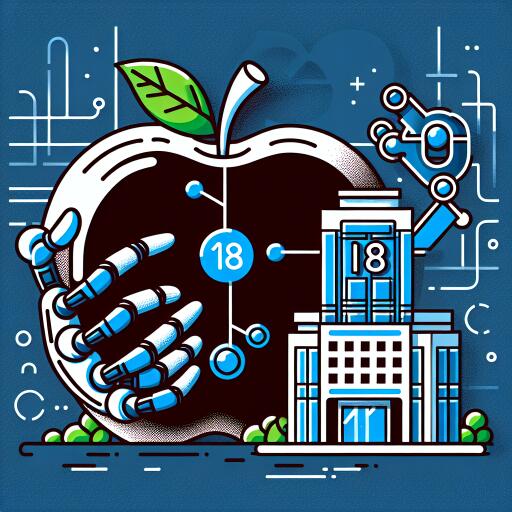Apple’s Strategic Move into AI with the Acquisition of DarwinAI
The technological landscape is constantly evolving, with artificial intelligence (AI) standing at the forefront of innovation. The recent unexpected success of ChatGPT has ushered in a new era, prompting many tech giants to explore AI integration across their product lines. Apple, although a bit delayed in its AI endeavors, is now making significant strides under the leadership of CEO Tim Cook, who has committed to pioneering advances in generative AI within the year.
The means through which Apple plans to revolutionize AI remains a well-guarded secret. However, recent developments suggest the Cupertino-based giant is embarking on an aggressive expansion into the AI domain. In a strategic move, Apple has acquired a plethora of AI startups, with over 30 companies joining its ranks in 2023 alone. This acquisition spree indicates Apple’s serious intentions towards AI, further substantiated by its recent acquisition of the Canadian firm, DarwinAI.
Bloomberg reports that DarwinAI, known for its technological advancements in manufacturing inspection, has been purchased by Apple. The acquisition, completed earlier in the year, hints at Apple’s interest in DarwinAI’s expertise in optimizing AI systems for enhanced speed and efficiency. This development is crucial, especially with rumors suggesting that the iPhone 16 will boast AI capabilities functioning independently of cloud computing.
While Apple maintains its customary silence on confirming acquisitions, the disappearance of DarwinAI’s digital presence and the LinkedIn profile update of its founder, Alexander Wong, to “director of machine learning research” at Apple, provide a clear indication of this strategic move. This acquisition is predicted to significantly bolster Apple’s AI capabilities, dovetailing perfectly with the upcoming release of iOS 18.
The World Wide Developer’s Conference (WWDC) 2024 is highly anticipated, with iOS 18 expected to showcase Apple’s robust entry into AI, emphasizing features powered by the company’s large language model. Rumors circulating about iOS 18 suggest integration of generative AI with Siri, enabling it to summarize contents and address inquiries in a manner reminiscent of ChatGPT, alongside enhancements to iMessage and AppleCare. Additionally, developers can look forward to the release of a new generative AI tool aimed at simplifying app development.
As is tradition, Apple aims to maintain backward compatibility for iOS 18 with a wide array of older devices, though it is speculated that the most cutting-edge AI features might be exclusive to the iPhone 16. This exclusivity might stem from hardware requirements, as AI advancements have significantly evolved since the introduction of the Neural Engine in the A11 Bionic processor of the iPhone 8. Considering this, it wouldn’t be surprising if the iPhone 16 and iPhone 16 Pro were to share the same chipset, enabling them to harness the full potential of on-device AI features that demand a more robust hardware infrastructure.
In conclusion, Apple’s acquisition of DarwinAI and its aggressive foray into AI signal a new era for its products, starting with the exciting unveilings expected at WWDC 2024. With the tech landscape ever-changing, Apple’s strategic investments in AI not only underline its commitment to innovation but also highlight the company’s adaptation to meet the growing demands of its user base in the age of artificial intelligence.









